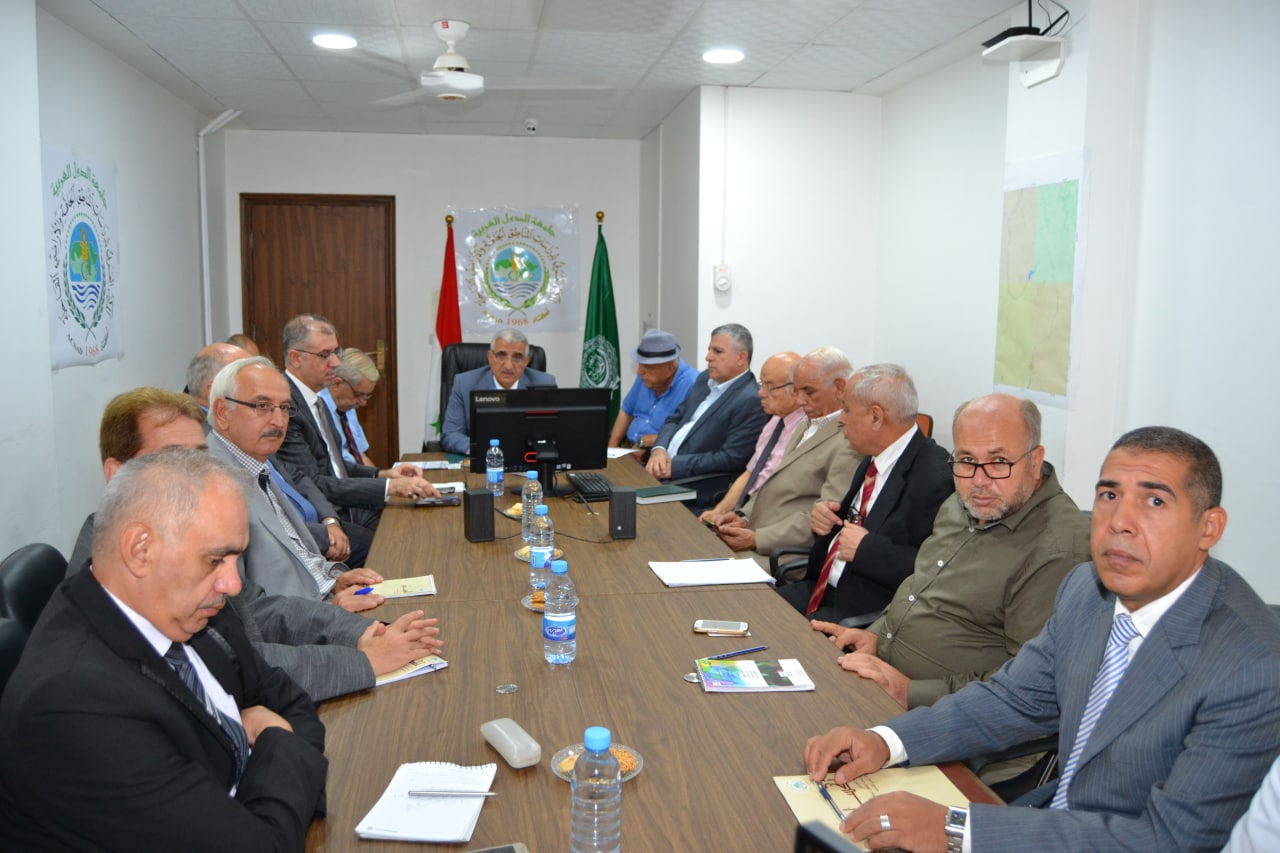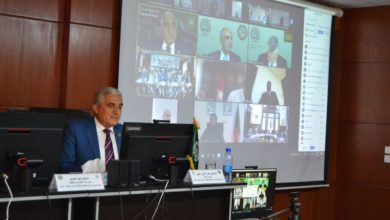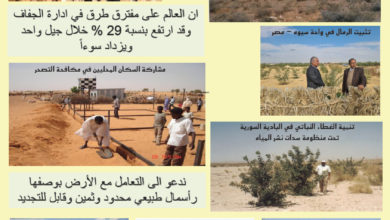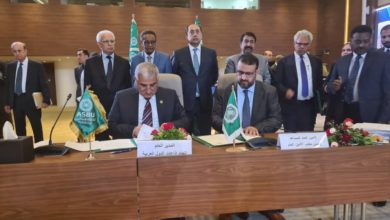ACSAD / training course / for the benefit of several Omani technicians and agrarians on Palm
The Arab Center for the Studies of Arid Zones and Dryland ACSAD held today a training course on “the effected factors in the growth and size of the palm fruit” in cooperating with the Ministry of Agriculture, Fisheries Wealth, and Water Resources in the Sultanate of Oman for the benefit of several Omani technicians and farmers working in the palm trees development and cultivation field. This course aims to raise their scientific capacities in fertilization, irrigation, pruning, pollination, and agricultural pest control that infect Date palm trees in the Sultanate.

His Excellency, the Director-General of ACSAD Organization, Dr. Nasr Edin Obaid, affirmed in a speech during the course opening via videoconference that this course on palm cultivation development, the affected factors in the growth and size of the fruit, and working on increasing dates production, is a result for the existing cooperation with the Ministry of Agriculture, Fisheries Wealth, and Water Resources in accordance with the Arab Center’s guidance and objectives as it is an Arab expertise house working on training the Arab cadres in all areas particularly, Palm Cultivation Development.
Dr. Obaid praised the cooperation between ACSAD and the Sultanate of Oman, which spans long years of joint work. Outcomes included: the adoption of seven varieties of Bred Wheat and Barley, which are some of the best varieties with high productivity resilient to diseases; the establishment of an integrated database for the natural grazing sites in the Sultanate, the implementation of a training course on the Methods of Cultivation and Service the Deciduous Fruit Trees and Olives.”, sending 1250 seedlings of olive, fig, and pears between 2019 and 2020, as well as the contribution of the Omani experts effectively to ACSAD’s efforts to combat Red Palm Weevil.
He said:” the Arab Center had and still has an outstanding effort and proactive manner in improving and developing palm and dates sector. We had been working for twenty-five continuous years on the implementation of events and activities in this field; like scientific research developmental projects, workshops, and training courses aimed at upgrading palm trees reality in the Arab Region of believing in the importance of this blessed tree, as well as it is the tree of the desert and the vegetation title in the dry areas.
He also clarified that those efforts resulted in establishing a development research network from 1944 to 2002, which produced special scientific reports, training courses, and workshops from which the workshop on Red Palm Weevil in 2002 at countries that participated in the project. This network included the sub-network for varieties improvement in Morocco, Production Techniques Sub-Network (Egypt), Integrated Pest Management Sub-Network (Saudi Arabia), and after-harvest fruit techniques’ sub-network the UAE, and the sub-network for the socio-economic studies in Syria.
The Director-general of ACSAD indicated that the Center had paid great interest to the palm sector by creating a particular program for Palm within the Center’s structure in 2003, which had been an introduction to implement many significant development projects in the Arab countries level. Such as the project of evaluation and selection of new varieties of seed palm strains and varieties in some Arab countries ( Egypt, Syria, and Saudi Arabia) from 2006 to 2011, which had been funded entirely by the Arab Center ACSAD, resulted in the establishment of genes pools. This project was able to achieve the partial description of ten new varieties of commercial-desired specifications palm dates in Egypt.
In his turn, the Director of Palm Department in the Ministry of Agriculture, Fisheries Wealth, and Water Resources in the Sultanate of Oman Eng. Haytham Bin Badr Bin Ibraheem Al-Khanjari praised the cooperation between the Ministry and the Arab Center ACSAD in various areas, especially in the field of training and technology transfer to Omani agricultural technicians through the courses organized by ACSAD. He also expressed his Ministry’s will to increase the cooperation with ACSAD in the field of histological palm multiplication, combating palm pests particularly, Red Palm Weevil, and service processes of vertical and ground Palm.
He also pointed out that there were 8.5 million palms cultivated upon an area of 32 thousand hectares and produced about 377 thousand tons of dates; the number of palm varieties in the Sultanate of Oman was up to 250. He also noted that the Dates’ production begins at the end of April.
It is worth to be mentioned that the project of cultivation of the Million Palms is one of the most significant pilot projects in the Sultanate. This is back to the number of activities and sectors related to it, which will enhance the country’s economic growth, social development, environmental awareness, and enhancing Dates market in the agriculture sector to cope with the future requirements and social needs.
The course’ program, which lasts for five days, includes many axes; most important of which are “Palm pollination techniques, service processes of vertical Palm, the integrated management to combating Red Palm Weevil, the integrated management of Palm Pests, Palm Trees Fertilization program, and the modern technologies to irrigating Palm Trees, by the supervision of several of ACSAD’s experts and outstanding researchers working in this field.



